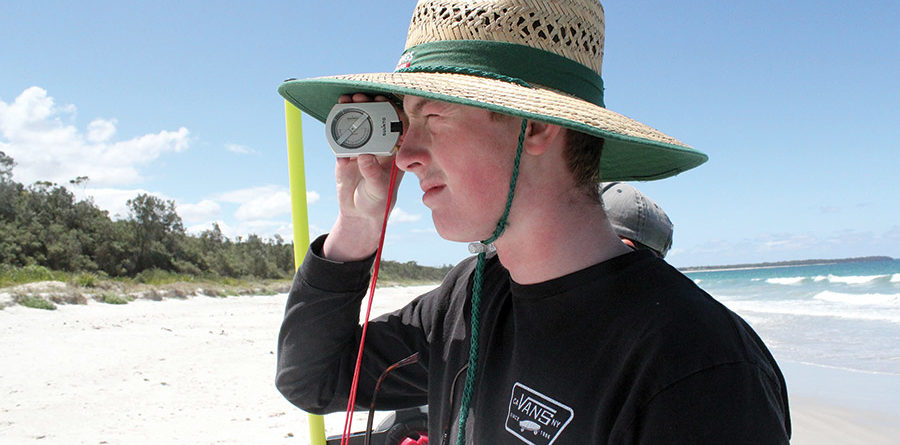The ever-evolving nature of Geography
Long gone are the days of memorising capital cities or learning about erosion from a simple worksheet. The Geography lessons Trinity students experience are immersive, relevant, and more exciting than ever as they make new discoveries about the world around us.
At its heart, Geography is the study of places and the relationships between people and the environments they live in, travel through, and impact. At Trinity, students reach this understanding by putting current affairs into context, developing spatial awareness skills, and grasping concepts such as social justice, interconnection, and cultural diversity.
Mr Adrian Shipp (Head of Geography) is pleased with the evolution of Geography, and the enthusiasm students are showing for the subject in response: “Geography has changed significantly since I was at school, it used to be about naming the rivers along the East Coast of NSW and learning the capitals of the world on a flat map. Today a typical Geography lesson could involve flying over canyons or diving into coral reefs using technology or problem-based learning to resolve some of the big issues affecting our planet.”
Now, Geography can often be found embracing and testing the limits of emerging technology – something that has come in handy during the challenges of 2020. Getting up close and personal with fascinating ecosystems can be tricky when your class is scattered across Sydney, unable to leave their houses. Fortunately, tools like drones are already commonplace in the world of Geography, and they became essential with the teachers at Trinity heading out ‘on location’ to record outdoor fieldwork to ensure students were engaged and informed throughout lockdown.
The advancement in technology has seen Geography advance rapidly as more accurate and detailed information can be acquired, leading to better insights and fascinating discussions both in the classroom and out in the world.
Technology isn’t the only driving force. The issues Geography touches on are varied and many, which is a huge drawcard for many forward-thinking students. Some of the hottest topics in the 21st Century – think climate change, sustainability, water accessibility, natural resources, and geopolitical frameworks – are examined in Trinity’s Geography classrooms and those that choose to study Geography have the opportunity to go on and be influential voices in the future of our planet.
One of those future voices could very well be Jonathan Titmarsh. Trinity News sat down with him to have a quick chat about what he loved about studying Geography throughout his senior academic years.
What do you love about studying Geography?
“The best part of Geography is trying to learn and capture the trends and movements of people. There isn’t just a set answer like other areas of study – there are so many layers and patterns because people are so complex.”
Why do you think people have misconceptions about Geography?
“I think a lot of people feel that Geography is an ‘easy’ subject and disengaging. The reality is that you’re always in a new area of Sydney or the world, exploring, analysing and discovering. It’s not ‘boring’, ‘disengaging’, or ‘easy’!”
What advice would you give to younger students deciding on their senior subjects?
“Pick subjects that interest you, because you’re dedicating hundreds of hours into these subjects. Whether you’re not that academic or you’re looking to excel in your studies, it’s far easier to study when you enjoy what you’re learning. I would recommend Geography if you’re interested in people and their complexities – you don’t feel like you’re in the classroom all the time. You get out in the world to discover new things all the time.”
















